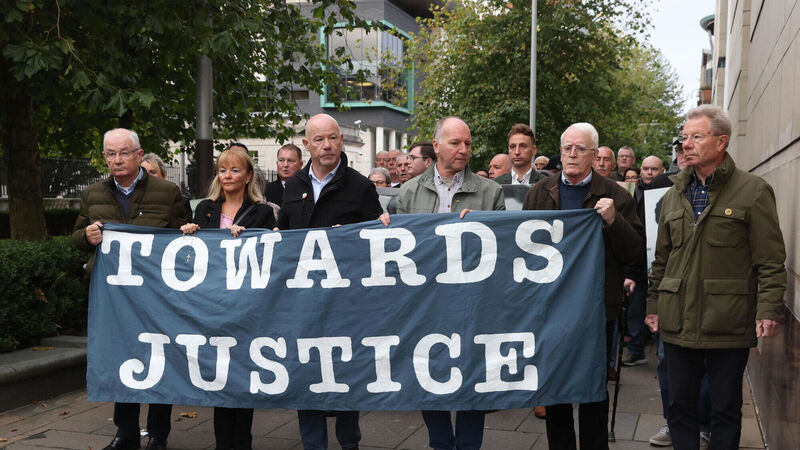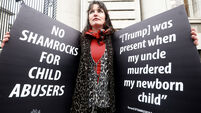Colin Sheridan: The Soldier F verdict shows the Republic’s peace was built on someone else’s pain

The brothers of Bloody Sunday victim William McKinney, Mickey (left) John (centre) and Joe (right) arrive at Belfast Crown Court where the verdict in the trial of a former paratrooper, referred to as Soldier F for legal reasons, accused of two murders during the Bloody Sunday shootings in 1972 is expected to be delivered. The veteran is accused of the murders of James Wray and William McKinney during disorder after a civil rights parade in Londonderry on January 30 1972. Picture date: Thursday October 23, 2025. PA Photo. Some 13 people were shot dead by the Parachute Regiment on that day. Soldier F is also accused of attempting to murder Michael Quinn, Patrick O'Donnell, Joseph Friel, Joe Mahon and an unknown person. Photo credit should read: Liam McBurney/PA Wire
One of the best pieces of sports writing I ever read was published around the time Armagh and Tyrone began winning All-Irelands in the early years of this century.
It captured a curiosity many of us outside Ulster — particularly the six counties — shared about why these sudden interlopers had such disdain for tradition and reverence. For blue blood. For “empire.”













